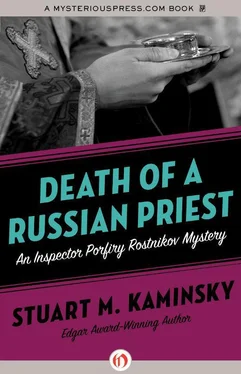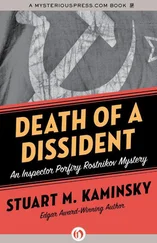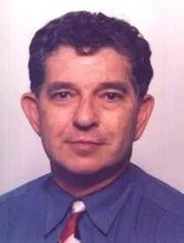Stuart Kaminsky - Death Of A Russian Priest
Здесь есть возможность читать онлайн «Stuart Kaminsky - Death Of A Russian Priest» весь текст электронной книги совершенно бесплатно (целиком полную версию без сокращений). В некоторых случаях можно слушать аудио, скачать через торрент в формате fb2 и присутствует краткое содержание. Год выпуска: 2012, Жанр: Полицейский детектив, на английском языке. Описание произведения, (предисловие) а так же отзывы посетителей доступны на портале библиотеки ЛибКат.
- Название:Death Of A Russian Priest
- Автор:
- Жанр:
- Год:2012
- ISBN:нет данных
- Рейтинг книги:3 / 5. Голосов: 1
-
Избранное:Добавить в избранное
- Отзывы:
-
Ваша оценка:
- 60
- 1
- 2
- 3
- 4
- 5
Death Of A Russian Priest: краткое содержание, описание и аннотация
Предлагаем к чтению аннотацию, описание, краткое содержание или предисловие (зависит от того, что написал сам автор книги «Death Of A Russian Priest»). Если вы не нашли необходимую информацию о книге — напишите в комментариях, мы постараемся отыскать её.
Death Of A Russian Priest — читать онлайн бесплатно полную книгу (весь текст) целиком
Ниже представлен текст книги, разбитый по страницам. Система сохранения места последней прочитанной страницы, позволяет с удобством читать онлайн бесплатно книгу «Death Of A Russian Priest», без необходимости каждый раз заново искать на чём Вы остановились. Поставьте закладку, и сможете в любой момент перейти на страницу, на которой закончили чтение.
Интервал:
Закладка:
He had watched television as much as he could, waiting for the news of his deed to appear on TSN. There were no special bulletins. “Vremya,” the nine o’clock news program, did not mention it, and this disturbed him. He wanted the world to know. He wanted word of this death to reach every corner of the stupid new commonwealth.
This morning he had attended services for the fallen martyr. The four-domed church had been jammed. People had to stand outside, dozens of people, people from as far away as Moscow, weeping, angry people.
He had slipped away as quietly as possible to be at the train with the others to meet the policemen from Moscow. He was very curious about who they would send and what they would do. He did not fear being caught-at least not very much-but he was curious, and now he stood with the others and watched the train pull in.
People clambered out, more people than usual, curious, mourning stupid people who had never met the dead priest. And then the ones they were waiting for; a tall pale unblinking figure in black and a squat man who looked like a small refrigerator and walked with a limp.
He stepped forward with the others to welcome the men and was sure for an instant that the limping man had looked into his eyes and seen something. But the killer did not panic. He told himself that this was the way of a policeman, that the man had certainly looked into the eyes of each of them for that same brief time, looked into their eyes and touched a raw coil of guilt in each of them.
He smiled sadly and assumed the others around him were looking sad, too. He smiled sadly and did his best to hide his fear of these two men who had come to expose him for a crime that was even more unspeakable than they could imagine.
SIX
The four men who met Rostnikov and Karpo on the platform of the Arkush train station were a somber lot. The little man with a smile of pain on his face, which Rostnikov soon learned was perpetual, introduced himself as Dmitri Dmitriovich, the mayor of Arkush. His white hair was parted in the middle and he wore a heavy, ancient dark gray wool suit that appeared to be at least a size too big. When Rostnikov took the extended hand, he felt a slight tremor, the first stages of some palsy or a reaction to the events of the past two days.
Next to introduce himself was Misha Gonsk, who had been the local MVD directorate. He was an overweight man in his late forties who wore a brown uniform and struggled to hold in his ample stomach. Evidently unsure whether he should shake hands or salute, he settled for standing at attention, closing his eyes for an instant, and bowing his head almost imperceptibly to the two visitors.
As the other two men stepped forward to be introduced, Emil Karpo made notes in his black book. The mayor was disconcerted.
“Why … I know it is not my place to ask … but why are you taking our names? We are not … this is …”
When Karpo did not so much as pause in his note taking, the mayor shrugged, touched his hair to be sure that it was still symmetrical, and looked at the two remaining members of the delegation. One of them, a tall man of about fifty, had the strong arms and slouched shoulders of a farmer.
“My name is Petrov, Vadim Petrov. I was Communist party representative of the Arkush council. Now … who knows?” He faced both policemen squarely and shook hands with a firmness that impressed Rostnikov. “Our mayor is understandably nervous,” Petrov explained. “Crime is unknown in our community.”
“Not exactly unknown, Petrov,” the policeman, Gonsk, asserted. “In the twenty years I have had the responsibility of enforcing the law in Arkush, there have been many crimes, all of which have been immediately investigated and reported to Moscow. Only last week-and our mayor will confirm this-there was a theft in the marketplace-tomatoes. And last month the toilet seats were taken from the party hall. Two seats.”
“Grave offenses,” Petrov said dryly. “But now we have a murder. Let me finish the introductions and take you for some tea. This is Peotor Merhum, the son of Father Merhum.”
Peotor Merhum, solid and handsome with blond hair and a fair complexion, was a sullen young man who did not offer his hand. He barely nodded.
Petrov, who had clearly taken over leadership of the small band from the bewildered mayor, led the group past the brick ticket booth of the train station to a sidewalk. “There is no point in taking a car,” he said. “Arkush is too small. Tea is waiting for us at the party hall.”
“From which,” Peotor Merhum added bitterly, “the infamous and important toilet seats were taken. Perhaps in your spare time you can help our town protector”-he glanced at Misha Gonsk-“to find the culprit.”
“Peotor is our town cynic,” Petrov explained.
“He is distraught about his father’s-” the mayor began, but Peotor Merhum cut him off.
“I am not distraught. Father Vasili Merhum was father to everyone but his son. It is no secret that I was less than dutiful. Why should we present a lie which the police will recognize the moment they talk to any man, woman, or child in Arkush?”
They were moving slowly because of Rostnikov’s leg, but Peotor kept stepping out ahead. The ample-bellied Gonsk kept pace with Rostnikov. Karpo dropped back a bit to follow and observe. All of the passengers who had gotten off the train had moved ahead of them.
“They are going to the church,” the mayor explained. “Services for Father Merhum this afternoon. A bishop is in Arkush to conduct the service. A bishop.”
They passed small ancient houses of wood and stone along me cobbled street. It struck Rostnikov that he had gotten off me train and stepped into the past. The street curved to the right and into the town’s main square where the buildings were no more than two stories high. Behind the buildings to his right was a small forest of brown-and-gray treetops over which he could see the four golden towers of the church.
In the center of the square stood a pedestal. There was nothing on it.
“Lenin,” said Vadim Petrov, the party chairman. “Vandals knocked it over during the first days of madness.”
“A crime our protector of toilets failed to mention,” Peotor Merhum said derisively.
“I was going to; it was in my report,” Misha Gonsk said quickly, looking back at Karpo to see if he had noted this omission.
“He isn’t sure of your politics yet,” Peotor Merhum said. “Our Misha is a survivor. He puts both hands in his mouth and holds up all ten fingers to decide which way the wind is blowing.”
“We are a close-knit and supportive community,” said Petrov, “a big family, as you can see.”
Peotor shrugged.
“How old are you, Peotor Merhum?” Rostnikov asked.
Since these were the policeman’s first words, the four men of the village studied him carefully to determine the meaning of this question.
“That is of no …” Peotor began, looked at Petrov, shrugged, and continued, “thirty-one. Why? What difference does that make?”
“In the presence of their fathers or the ghosts of their fathers, many men are forever children,” Rostnikov said.
“Is that an insult?” Peotor said.
They had stopped in front of a three-story, gray wooden building, evidently the party hall.
“An observation,” said Rostnikov. “Would you like another one?”
“No,” said Peotor.
“Go ahead, Inspector,” said Petrov the farmer, his eyes on Peotor Merhum.
“I have frequently seen grief expressed as guilt and anger. It is my experience that it should be recognized, acknowledged, and tolerated to the extent that it does not interfere with the life that must go on.”
“He’s telling you to stop behaving like a child, Peotor,” Petrov explained.
Читать дальшеИнтервал:
Закладка:
Похожие книги на «Death Of A Russian Priest»
Представляем Вашему вниманию похожие книги на «Death Of A Russian Priest» списком для выбора. Мы отобрали схожую по названию и смыслу литературу в надежде предоставить читателям больше вариантов отыскать новые, интересные, ещё непрочитанные произведения.
Обсуждение, отзывы о книге «Death Of A Russian Priest» и просто собственные мнения читателей. Оставьте ваши комментарии, напишите, что Вы думаете о произведении, его смысле или главных героях. Укажите что конкретно понравилось, а что нет, и почему Вы так считаете.












